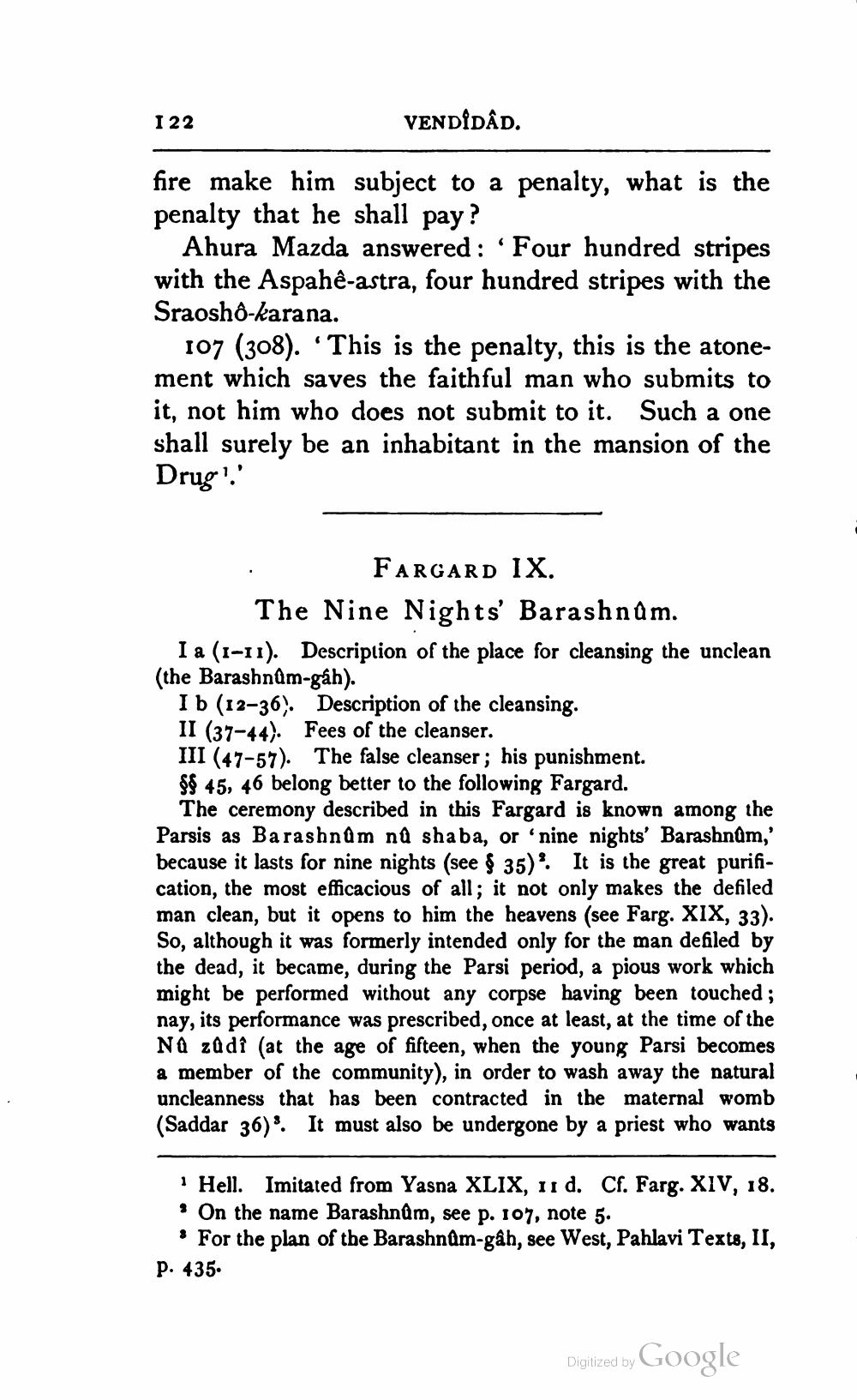________________
I 22
VENDIDÂD.
fire make him subject to a penalty, what is the penalty that he shall pay ?
Ahura Mazda answered: 'Four hundred stripes with the Aspahê-astra, four hundred stripes with the Sraoshô-karana.
107 (308). “This is the penalty, this is the atonement which saves the faithful man who submits to it, not him who does not submit to it. Such a one shall surely be an inhabitant in the mansion of the Drug!'
FARGARD IX. The Nine Nights' Barashna m. Ia (1-11). Description of the place for cleansing the unclean (the Barashnüm-gåh).
I b (12-36). Description of the cleansing. II (37–44) Fees of the cleanser. III (47-57). The false cleanser; his punishment. $$ 45, 46 belong better to the following Fargard.
The ceremony described in this Fargard is known among the Parsis as Barashnům nû shaba, or nine nights' Barashnům,' because it lasts for nine nights (see $ 35). It is the great purification, the most efficacious of all; it not only makes the defiled man clean, but it opens to him the heavens (see Farg. XIX, 33). So, although it was formerly intended only for the man defiled by the dead, it became, during the Parsi period, a pious work which might be performed without any corpse having been touched : nay, its performance was prescribed, once at least, at the time of the Na zadi (at the age of fifteen, when the young Parsi becomes a member of the community), in order to wash away the natural uncleanness that has been contracted in the maternal womb (Saddar 36). It must also be undergone by a priest who wants
· Hell. Imitated from Yasna XLIX, 11 d. Cf. Farg. XIV, 18.
On the name Barashnûm, see p. 107, note 5. . For the plan of the Barashnům-gåh, see West, Pahlavi Texts, II, p. 435.
Digitized by Google




